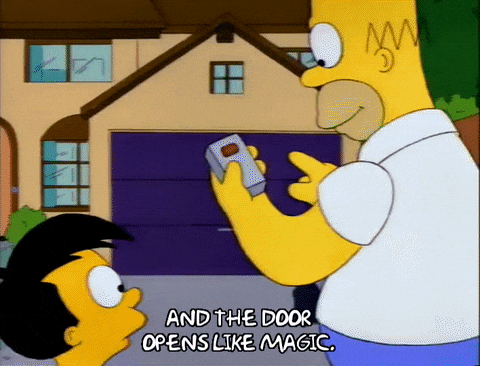A 26-year-old with a rare condition that means she can barely hold her head up and risks being internally decapitated is desperate to raise £35,000 ($44,200) for lifesaving surgery.
Experiencing terrifying seizures and fainting fits for as long as she can remember, Zoe Elliott, who lives near Salisbury, Wiltshire, was finally diagnosed with craniocervical instability (CCI) in December 2019— meaning the area where her skull and spine meet is unstable.
Unable to work and living in fear of her head detaching itself from her body, she has now launched a GoFundMe page, asking strangers to help raise £35,000 ($44,200) to fund surgery to fuse her C1 vertebra to the base of her skull, strengthening the area, restoring a full range of movement and giving Zoe her life back.
Her situation is even more difficult as she was previously a carer for her mum Lisa, 61, who has metastatic breast cancer, which has spread to her bones.
“I want to help my mum more but I can't. It's like we've reversed roles and she's looking after me now. I really worry about what will happen if I don't get the surgery—even the phrase 'internal decapitation' scares me, as it sounds so horrible."
“I've been told it could only happen with a really strong impact, like being in a car accident, but it's still scary."

She continued:
“I'm trying to raise a lot of money and have been criticized online for turning to fundraising."
“One person even accused me of wanting people to pay for my cosmetic surgery, when there's nothing cosmetic about it—but as I can't work, I have no other choice."
“It would mean everything to me. I'm 26 now, and I keep thinking that, just maybe, by the time I turn 30, I can have some normality, and regain the time I've lost."

Even as a little girl, Zoe can recall experiencing symptoms of what was to come—although, as she had never known life without them, she did not, at first, realize they were unusual.
She explained:
“I was hyperflexible, but very weak at the same time. I'd do gymnastics at school, but, even at my fittest, couldn't do a single push up. I'd also find that my joints would dislocate easily."
“At first, I just thought that was normal – it took a while for me to realize that this wasn't something that happened to everyone."

Then, when she was around 14, Zoe became prone to mysterious fainting episodes, seemingly with no real trigger.
Concerned, she sought medical help, and was referred for a series of examinations, including a tilt test, where she was strapped to a motorized table at different angles while her body's reactions—including her heart rate, blood pressure and any light-headedness—were monitored.
As a result of the tilt test, aged 15, she was officially diagnosed with postural tachycardia syndrome (PoTS)—an abnormal increase in heart rate that occurs after sitting or standing up.

According to the NHS, gravity would normally pull some blood down to a person's belly, hands and feet, causing the blood vessels to narrow and heart rate to slightly increase to prevent blood pressure dropping, but this does not happen in a PoTS patient.
Instead, the heart begins to race to compensate for the drop in blood supply, which, in turn, can cause dizziness, palpitations, sweating, chest pain and fainting.
“I got horrendously bullied over it. People would accuse me of faking my fainting fits, or they'd do horrible things to try and bring me round, like smear food in my hair."
Hoping that a diagnosis would mean she could begin to manage her symptoms and restore some normality to her life, Zoe persisted with doctors. Then, when she turned 16, she started having seizures.
Recalling her first ever one, she said:
“I remember texting my mum saying I wasn't feeling well and was going to lie down for a few hours. By the time she got home, she couldn't wake me. I was completely unresponsive. No matter what she tried, I couldn't be roused."
“She rang 999 and I was taken to hospital. After I eventually came round, the doctors said they thought it was because my body had gone into shock."

A cocktail of neurological tests followed, including an electroencephalogram (EEG)—used to monitor the electrical activity in the brain.
But, with nothing detecting anything wrong with her actual brain, she continued to have fits and was given anti-seizure medication.
Desperate not to give her bullies any more of a reason to target her, she did her best to keep the terrifying episodes a secret.

“Over the years, I was put on 13 different types of medication—but nothing seemed to work."
“I was still having seizures every week. They'll usually be grand mal seizures, which are what most people imagine when they think of somebody having an epileptic fit, where your limbs jerk about and you sometimes lose consciousness."
“I could feel them coming on. I'd get pins and needles across my face, and it would almost feel as if I had butterflies in my head. At college, I'd take myself off to the toilet so nobody saw me have a seizure."

Last year, aged 25, Zoe received more tough news when she was asked during a routine doctor's appointment if she had ever been tested for joint hypermobility syndrome, which would explain why she was so flexible as a youngster.
Tests, including a standing MRI scan to monitor the range of movement in her tendons, confirmed that her mobility was actually symptomatic of Ehlers-Danlos Syndrome (EDS), a rare condition affecting the connective tissue.
“That, combined with the PoTS, answered a lot of questions I'd had about my symptoms, like how my joints would easily dislocate, and why I'd faint."

She added:
“But I didn't think that was the whole story. There were still the seizures, and other odd little symptoms I'd had like difficulty swallowing and hearing loss."
In the wake of her EDS diagnosis, Zoe joined a number of online support groups.
After posting about her symptoms one day, a stranger messaged her, telling her to look into CCI, as it sounded like she may have it.
“I got added into another group about CCI, and at first, I was skeptical."
“But reading the posts, I couldn't believe it. Every symptom I'd ever had was there. I mentioned it to my NHS doctor, who hadn't even heard of it at first, but after looking into it, they agreed that it was very likely I had it."
“Next, I took the little money I had and put it all towards going to London for a private appointment with a specialist in December 2019, who did some tests and officially diagnosed me with CCI and atlantoaxial instability (AAI), meaning both the ligaments and the vertebrae around my neck and spine are unstable."
“They did a scan to see what my neck looked like when I moved around, and everyone was open-mouthed at the results. My head went right back, almost as if it was going to come off."

She added:
“A doctor in Barcelona, Spain, who is renowned for treating CCI and AAI, was recommended to me and backed up the diagnosis, telling me my only hope was to have surgery to fuse my neck to the base of my skull."
According to The Zebra Network, an organization that educates, supports and advocates for people living with EDS, the symptoms of CCI can include pressure headaches, fainting episodes, balance problems, hearing loss, difficulty swallowing and paralysis, and can lead to the deformation of the brain stem and spinal cord.
Zoe continued:
“I got the diagnosis three times in total. The final time, I burst into tears. Everyone thought I was upset, and of course, it was terrifying to hear, but mostly I was relieved."

“I finally had a name for what was wrong with me and understood that all my symptoms fell under the same bracket. But more than that—after being told I was faking it by bullies at school, I had been believed."
As the complicated surgery she needs is unavailable on the NHS, Zoe has no choice but to fund a private operation.
Last month, she found a clinic in Leeds, West Yorkshire, that can help—but she must raise £35,000 ($44,200), which she is hoping a GoFundMe page can help with. Meanwhile, until she can go under the knife, her life is virtually on hold.

Scarcely able to lift her head, everyday tasks like washing and dressing are very difficult, meaning she spends much of her time in bed, where she sleeps upright, propped up by pillows.
“If I lift my head too suddenly, I'll faint or have a seizure. Where my head is so unstable, my brainstem is being impacted, which is theoretically what's causing seizures," she said, adding that doctors do not know what has caused her to suffer from CCI.
“Even simple things like showering, I have to do in little stints, a few minutes at a time. I sometimes struggle to even swallow. I'm mostly on a liquid diet of special shakes, and drink a lot of water too, as that helps with the PoTs, but I find myself choking even on that."

She added:
“I get terrible brain fog and memory problems too, and sometimes know what I want to say, but can't get my words out in the right order."
Though daunted by the prospect of such major surgery, Zoe, who hopes some of her other symptoms, like her fainting fits, will also be alleviated by the operation, is feeling hopeful.
By having her neck fused, she will be able to build up the surrounding muscle, ultimately strengthening her skull and spinal cord. For now, she is helping others online via a Facebook group she has set up about her plight, called Bobblehead Girl.
“I have a long road ahead of me, but all I want is to do those things most people take for granted. It has been difficult living with an invisible illness, as people sometimes assume that, because you look fine, you are."
“When I was younger, I'd push myself more to go out with friends, and invariably get comments about how I wasn't well enough to work, but was well enough to socialize. People are only seeing a snapshot, though—they don't see the daily pain I live in, and how a simple outing will take weeks to recover from."
“This surgery would change my life, but it's not like I'm asking people to help me go paragliding or anything extreme. I have lost my 20s to this, and I just want to do the simple things like get a coffee with my friend, or be able to work."

For her loved ones, including her mum, Lisa, watching Zoe suffer is heartbreaking.
Lisa said:
“The biggest strain is seeing Zoe in day to day pain. I even have a baby monitor and get up through the night to check if she is breathing, because she has seizures and can only sleep upright on her back with pillows supporting each part of her body."
“She always tries to be happy and social, but I know how depressed she is by the pain."
To donate, click here















 house GIF by Leesh
house GIF by Leesh Drive GIF by GloRilla
Drive GIF by GloRilla Louis Vuitton Shopping GIF by Pudgy Penguins
Louis Vuitton Shopping GIF by Pudgy Penguins Brady Bunch Hug GIF by TV Land Classic
Brady Bunch Hug GIF by TV Land Classic homer simpson sharing GIF
homer simpson sharing GIF
